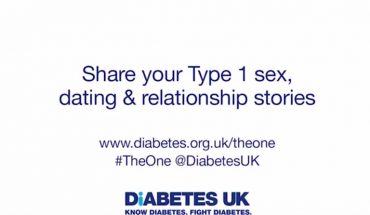As figures show that those in professional jobs are much more likely to be regular alcohol drinkers than those on average incomes, it just proves, once again, that alcohol addiction is no respecter of income.
Excess champagne is just as toxic as excess corner shop vodka but it’s probably true to say that some wealthy people feel invincible. Some have inherited wealth. Some have reached the pinnacle of their profession and achieved extraordinary things. However, ‘avoidance’ delays treatment, and makes problems worse. Addictions are a great leveller. I’ve had patients who say matter of factly: ‘I drink champagne and take cocaine regularly because I can afford it’ but all addicts hit the buffers eventually. There’s no invisibility cloak for addiction, however mega-wealthy you are.
Addictions are a great leveller. I’ve had patients who say matter of factly: ‘I drink champagne and take cocaine regularly because I can afford it’ but all addicts hit the buffers eventually. There’s no invisibility cloak for addiction, however mega-wealthy you are.
One of the biggest hurdles of detox can be the first tenet of Alcoholics Anonymous: admitting you are powerless. For someone who has built up or inherited great wealth, to admit you are powerless is probably the most difficult thing of all — but not impossible.
At the Priory’s Hospital in Roehampton, south London, we’ve always treated a number of high net worth individuals from the UK and abroad for addictions and other mental health conditions. We’re very close to the centre of a global city, so it’s inevitable we see some of the mega-wealthy who live or work here or are passing through. And Priory is well -known as a world leader in addiction. People have heard of us. When patients leave, some are evangelical about their recovery and willing to talk about having been here.
Some wealthy patients may have been able to conceal the consequences of their illness because of their entourage. They may not trust many people and so have a close-knit team which won’t feel emboldened to give them the advice they need when they become addicted or mentally ill. The person might be a very high functioning addict at the helm of a global organisation, terrified of acknowledging weakness or failure. But the consequences will catch up with them.
I work with the patient and their family face-to-face before admission, to address confidentiality issues. Some people chose to come in under a pseudonym. The hospital has a secure entrance through to the patient areas – this means that members of the public cannot access patient areas without clearance. We manage media interest very closely. All patients sign a confidentiality agreement on admission that they will not discuss or disclose anything about any other patient on the programme. However, we’re finding that more and more addicts are being open and honest and proud of their own recovery. Patients in the public eye who have talked openly about their mental health can make it easier for others to admit their problems.
By the time most addicts get to see an Addiction Psychiatrist like me, the consequences are so grave that they need residential treatment. And I think all qualified doctors would say, with good reason, that they prefer people to detox as inpatients in hospital. It’s really no joke. Detoxing from alcohol can quite literally kill you. If you’ve been drinking heavily, 24 to 48 hours after stopping you may have a withdrawal seizure and once you’ve had one, you’re likely to have another.
It’s really no joke. Detoxing from alcohol can quite literally kill you. If you’ve been drinking heavily, 24 to 48 hours after stopping you may have a withdrawal seizure and once you’ve had one, you’re likely to have another.
The DTs (delirium tremens, a severe symptom of withdrawal) are a medical emergency — they can cause hallucination and raised blood and heart pressure. And when people develop significant addictions, with all the multiple consequences, and usually become very isolated, only residential treatment can really break the toxic cycle. So, alcoholics will almost always need a medication-assisted detox to avoid serious and potentially fatal withdrawal conditions.
After detox, coming to terms with the consequences of addiction, and recognising the emotions behind misusing, can be very stressful. Sometimes this triggers relapse. Put simply, being somewhere where you can’t get at your drug of choice, with qualified professionals and supportive peers, hugely increases the chance of recovery. That’s why there are few successful day programmes for primary, first stage addictions.
It’s important to enter a residential programme to break all habits that have been formed around the addiction. The patient will be surrounded by peers who will support each other and share experiences, building a strong network for when the patient leaves.
The addiction programme consists of group therapy, individual sessions and family therapy, so there are 1:1s in the programme and if people don’t like group therapy, we can do 1:1. We listen to patients’ preferences. Absolutely. But I would say that the recovery rate is higher in groups and that’s why the programme is designed to be mostly groups – it builds a therapeutic community that encourages recovery, and it works. Patients meet other people who are going through the exact same thing and gain extraordinary insight into themselves and one another which can resolve distress and brings relief and recovery. Addiction can be an incredibly isolating disease, and some people will want to deal with this on their own. I understand that. But being part of a group brings tremendous strength, and belief that recovery is possible. It’s extremely powerful. As you bare your soul to others and they to you, there’s an affinity you cannot replicate outside a group. There’s lots of humour in groups too, which can be positive and rehabilitating.
I would urge people to look for credibility, qualified medical staff, and somewhere that treats dual diagnoses if that is your need (Priory treats anxiety and depression together, for example). The Priory in Roehampton is a hospital with doctors and nurses, and for detox I would say that this is essential. We also have fellowship meetings every night and family involvement if the patient allows it. The programme is all day, every day. Most importantly, you’re not on your own. You meet others in the same boat and we do have a laugh, which is hugely important. I often ask patients in recovery: “What would you have said to yourself six months ago to persuade you to seek help?” One of the best, simplest answers I have heard is: “You can have a better life, you don’t have to live like this.”
- Hangxiety: What it is and why it’s rising - 3rd November 2022
- Dry January in a pandemic - 31st December 2020
- Alcohol addiction is no respecter of income - 9th May 2018







